Humanities & Social Sciences
Mak Celebrates 10 Years of the Confucius Institute with Launch of Three Associations
Published
1 year agoon
By
Jane Anyango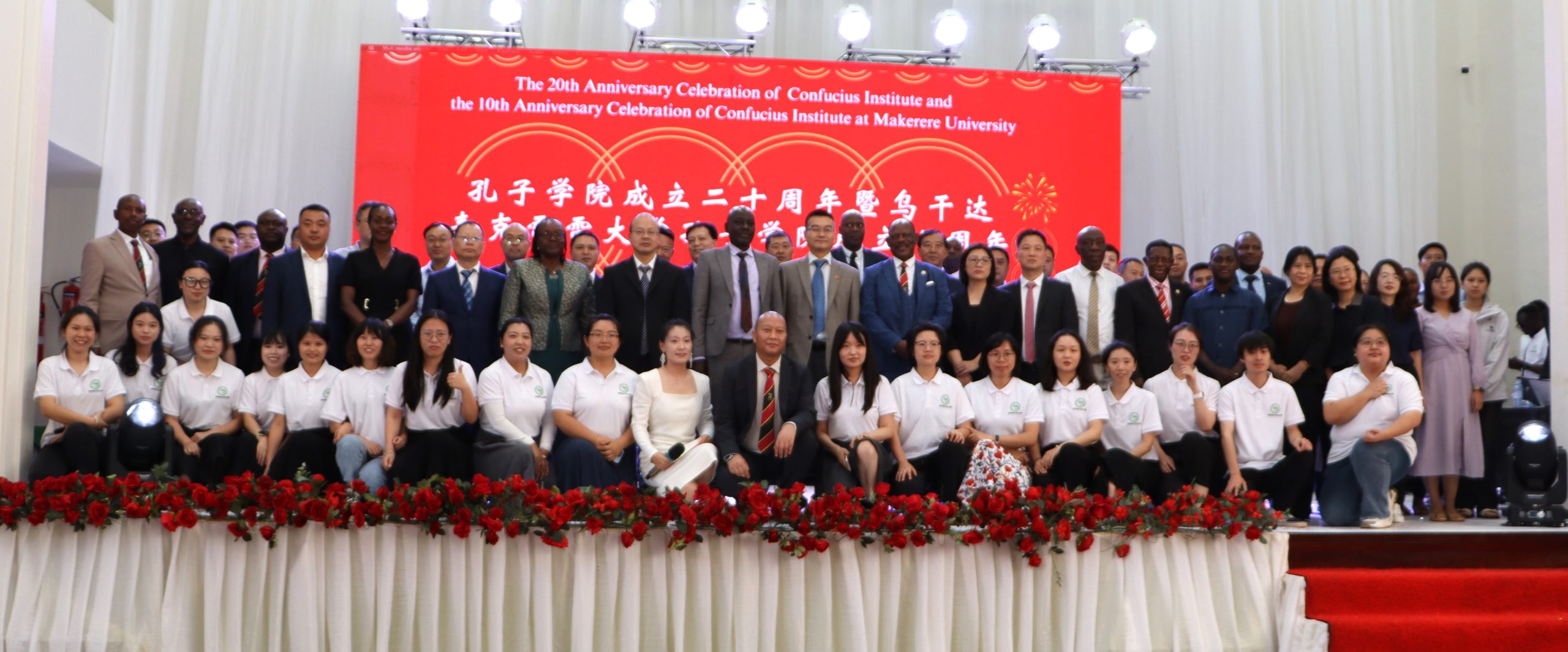
Makerere University on 25th November 2024 marked a decade of cultural and academic partnership with China by celebrating the 10th anniversary of its Confucius Institute and the 20th anniversary of the global Confucius Institutes network. Established in 2014, the Confucius Institute has grown into a key pillar in fostering relations between Uganda and China, language education, cultural exchange, and academic collaboration.
The event, held at the University Main Hall, featured the launch of three associations: the Confucius Institute Alumni Association, the Uganda Native Chinese Language Teachers Association, and the Uganda Secondary School Chinese Students Association.
The colorful ceremony was presided over by Mr. Mulindwa Israel, Director of Basic and Secondary Education, representing Uganda’s Minister of State for Higher Education. The function was also graced by the representatives of the Chinese Ambassador to Uganda and the Vice President of Xiangtan University. Makerere University Vice Chancellor Prof. Barnabas Nawangwe addressed the gathering. The event included cultural performances, speeches, and panel discussions that highlighted the growing ties between Uganda and China.
Uganda’s Ministry of Education Extends Gratitude to Confucius Institute
A representative of Uganda’s Minister of State for Higher Education, Mr. Mulindwa Israel lauded the Confucius Institute at Makerere University for its decade-long role in fostering stronger ties between Uganda and China. Speaking at the Institute’s 10th anniversary celebrations, Mr. Mulindwa, the Director for Basic and Secondary Education at the Ministry of Education and Sports, emphasized the Institute’s pivotal contribution to promoting Chinese language and culture in Uganda.
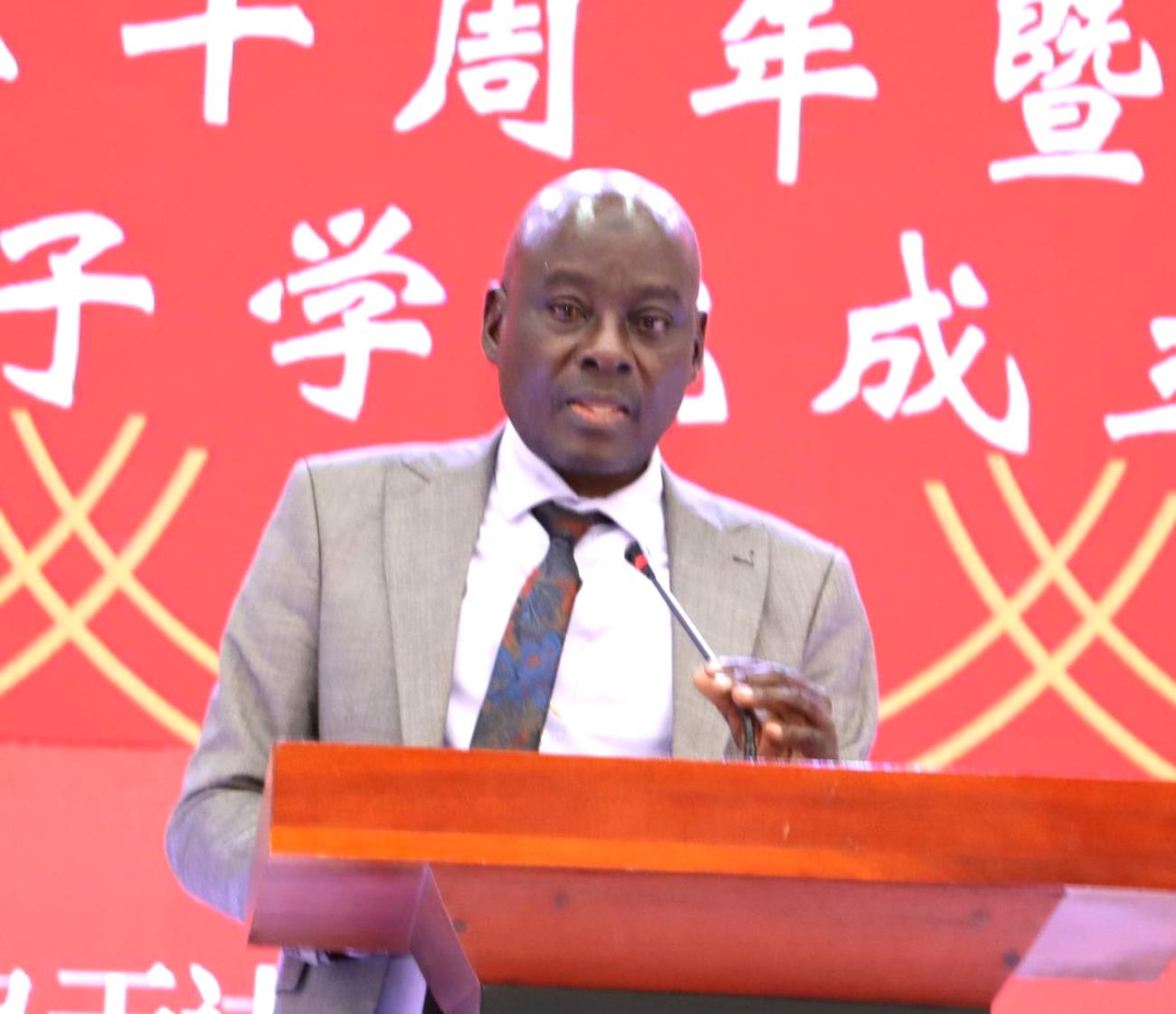
Mr. Mulindwa delivered the message on behalf of the Minister of State for Higher Education, Dr. J.C. Muyingo, who was unable to attend due to another pressing engagement. “It is my great honor to represent the Ministry today as we celebrate a decade of academic collaboration and cultural exchange between Uganda and China,” Mr. Mulindwa stated. “The Confucius Institute has been an important bridge in strengthening the relationship between our two nations.”
Highlighting the Institute’s achievements, Mr. Mulindwa praised its role in introducing Chinese language instruction to Ugandan secondary schools and facilitating teacher training. “This year, we witnessed the significant milestone of Chinese language assistants being deployed across Uganda’s ordinary and advanced secondary schools. I am also excited to note the commitment to train over 500 teachers in the coming years to meet the growing demand for Chinese language education,” he said.
The Director also commended the Institute for its innovative virtual Chinese and Asian Studies program, which has already produced highly qualified graduates in the Chinese language. “This initiative complements the Ministry of Education and Sports’ efforts to train sufficient teachers to meet the increasing demand for Chinese language instruction,” Mr. Mulindwa added.
Reflecting on the philosophy of Confucius, Mr. Mulindwa concluded, “Learning without thought is laborious. Thought without learning is priceless. The Confucius Institute embodies this philosophy, nurturing minds and fostering global citizenship.”
He further expressed gratitude to the Chinese Embassy in Uganda, the leadership of Makerere University, and all partners involved in supporting the Confucius Institute’s success. Mr. Mulindwa assured them of the Ministry’s continued support in advancing cultural understanding, innovation, and cooperation between Uganda and China.
“Congratulations to the Confucius Institute on this remarkable achievement,” Mr. Mulindwa concluded, pledging continued support for the Institute’s future endeavors.
Makerere Vice Chancellor Celebrates 10 Years of Cultural and Educational Achievements
Makerere University Vice Chancellor, Prof. Barnabas Nawangwe, hailed the Confucius Institute for its transformative impact on Chinese language education and cultural exchange in Uganda. Prof. Nawangwe emphasized the institution’s role in fostering deeper ties between Uganda and China.
“The Confucius Institute at Makerere University, established in 2014 with the generous support of the Chinese Government and Xiangtan University, has achieved remarkable milestones over the past decade,” Prof. Nawangwe remarked.
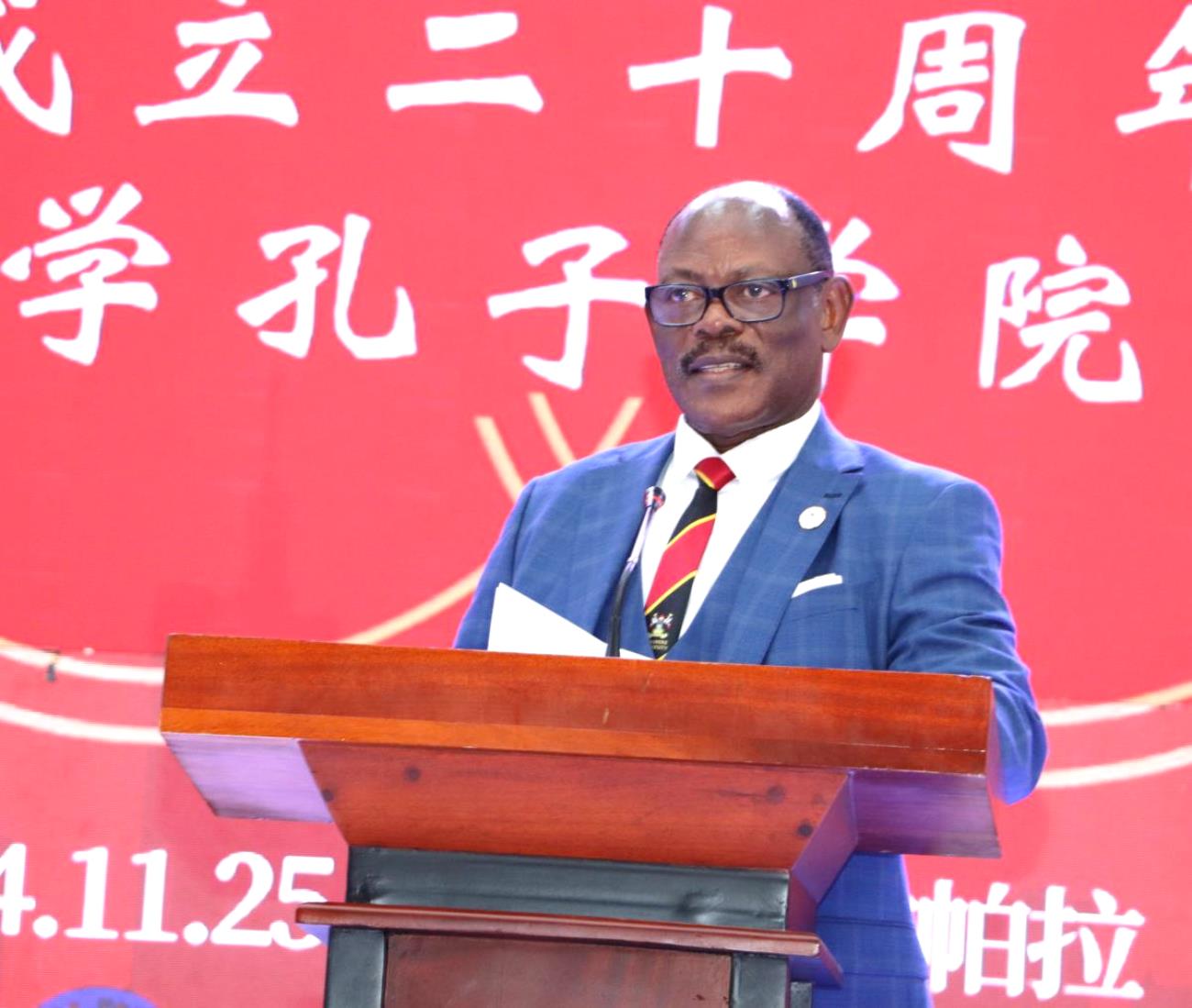
He highlighted the growth of the Chinese language program at Makerere University, which began with just 30 students and now boasts over 4,000 learners across degree programs, short courses, and secondary schools. “This significant growth reflects the increasing interest in Chinese language and culture among Ugandans,” he added.
Prof. Nawangwe acknowledged the Institute’s pivotal role in building partnerships with Chinese companies and institutions, enabling Makerere students and staff to access scholarships and other opportunities in China. He also commended the Institute for serving as a bridge between Uganda and China, enhancing economic and cultural ties.
Looking ahead, the Vice Chancellor outlined an ambitious vision for the next decade. “We envision the Confucius Institute becoming a leading center for Chinese language and cultural studies in East Africa. Our plans include expanding our programs to cover Chinese culture, history, and business, and establishing more partnerships with Chinese enterprises and institutions,” he stated.
Recognizing the challenges of meeting the growing demand for Chinese language skills driven by Uganda-China economic ties, Prof. Nawangwe called for continued investment in programs, infrastructure, and innovation.
He expressed gratitude to the Chinese Government, Xiangtan University, and the Centre for Language Education and Cooperation for their unwavering support. “We are also deeply thankful to our dedicated staff and students, whose efforts have made the Confucius Institute at Makerere University a success,” he noted.
As the celebrations concluded, Prof. Nawangwe reaffirmed Makerere University’s commitment to promoting Chinese language and culture and strengthening the relationship between Uganda and China.
“This 10th anniversary is not just a reflection of our achievements but a beacon for the exciting opportunities that lie ahead,” he concluded.
Directors Celebrate Milestones
Directors Dr. Gilbert Gumoshabe and Mr. Tang Fei reflected on the Institute’s achievements. They highlighted milestones such as training over 50,000 students in Chinese language and culture, preparing 170 Ugandans as Chinese language teachers, and facilitating the further studies of 200 students and scholars in China.
“Today, we celebrate a journey that has transformed lives and fostered understanding. With unwavering support from our partners, we have moved mountains,” Gumoshabe said
The Institute has also excelled in hosting cultural events, supporting the introduction of Chinese in Ugandan secondary schools, and launching a Bachelor of Chinese and Asian Studies program that has already produced graduates. Additionally, it has connected students to job opportunities in Chinese companies, significantly improving their livelihoods.
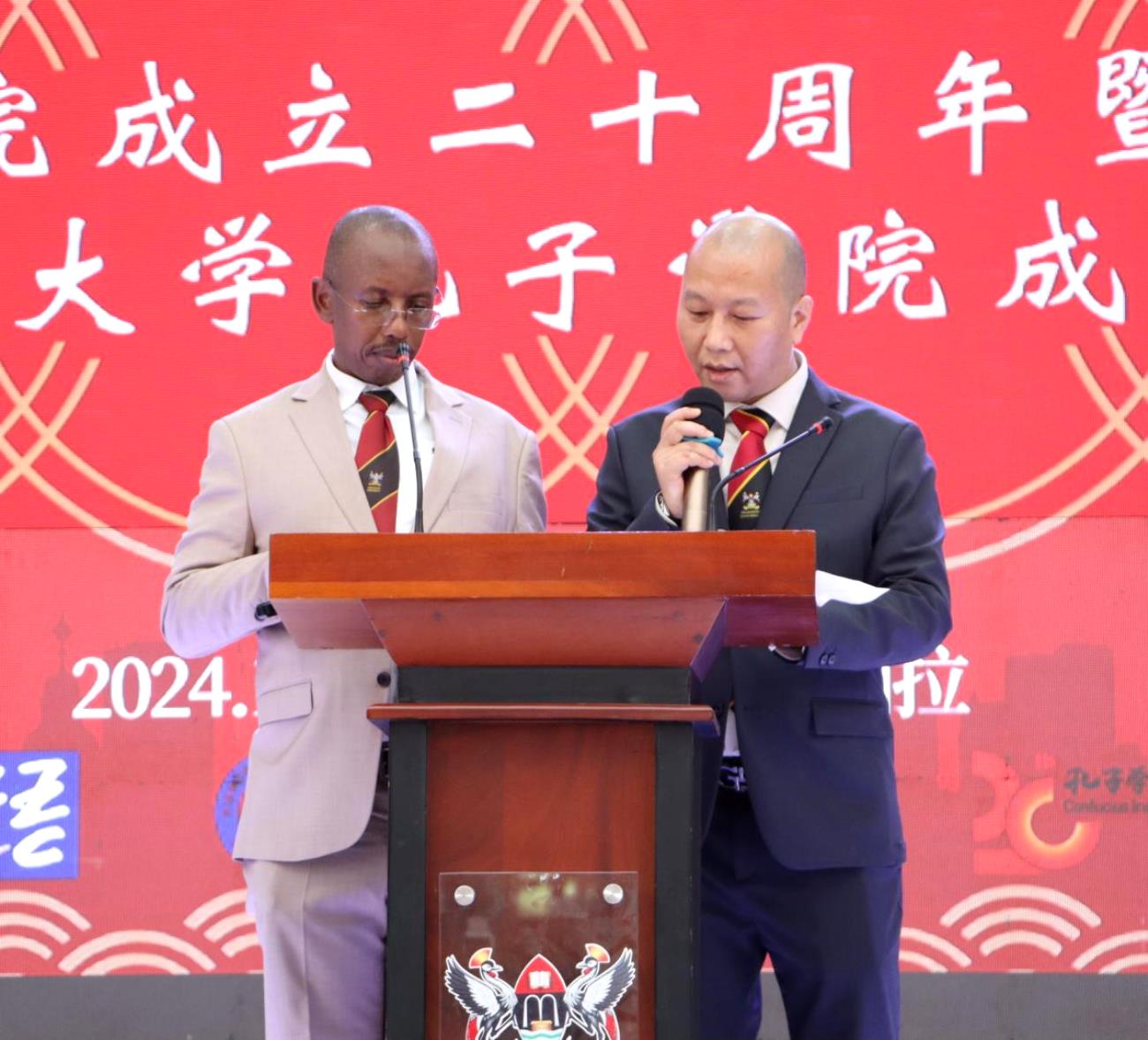
One of the notable accolades mentioned was the recognition of the Confucius Institute as the “Institute of the Year” in 2018, a testament to its exemplary performance. Other achievements include fostering research in China-Africa relations, excelling in international competitions such as the Chinese Bridge Competition, and organizing cultural activities beyond Makerere University.
The Directors acknowledged the support of Makerere University, particularly under former Vice Chancellor Prof. Ddumba Ssentamu and current Vice Chancellor Prof. Barnabas Nawangwe. They also extended gratitude to partners such as Xiangtan University, the Chinese Embassy, and the National Curriculum Development Centre, led by Dr. Grace Baguma, for their role in the Institute’s success.
Looking ahead, the Confucius Institute aims to expand academic programs, deepen cultural exchange, and enhance language training to meet growing global demands. The Directors also paid tribute to former CI directors, including Prof. Hong Yonghong, Prof. Oswald Ndoleriire, Ms. Xia Zhuoqiong, and Dr. Zhong Jianghua, for their contributions to the Institute’s growth.
In their closing remarks, the Directors invoked the wisdom of Confucius: “The man who moves a mountain begins by carrying away small stones.” They expressed pride in the journey of hope and persistence that led to this milestone and emphasized their commitment to achieving even greater heights in the years ahead.
Chinese International Education Foundation Applauds Confucius Institute at Makerere for 10 Years of Excellence
The Vice President and Secretary General of the Chinese International Education Foundation congratulated the Confucius Institute at Makerere University on its 10th anniversary, celebrating its achievements in promoting cultural exchange and education between China and Uganda.
In a message delivered during the anniversary celebrations, the foundation commended the collaborative efforts between Makerere University and Xiangtan University. “In the past ten years, Makerere University and Xiangtan University have sincerely cooperated with each other. The Confucius Institute, adhering to the principles of carrying forward traditions, daring to innovate, uniting and cooperating, and dedicating with professionalism, has become an important bridge for disseminating Chinese culture and fostering friendship between China and Uganda,” the message read.
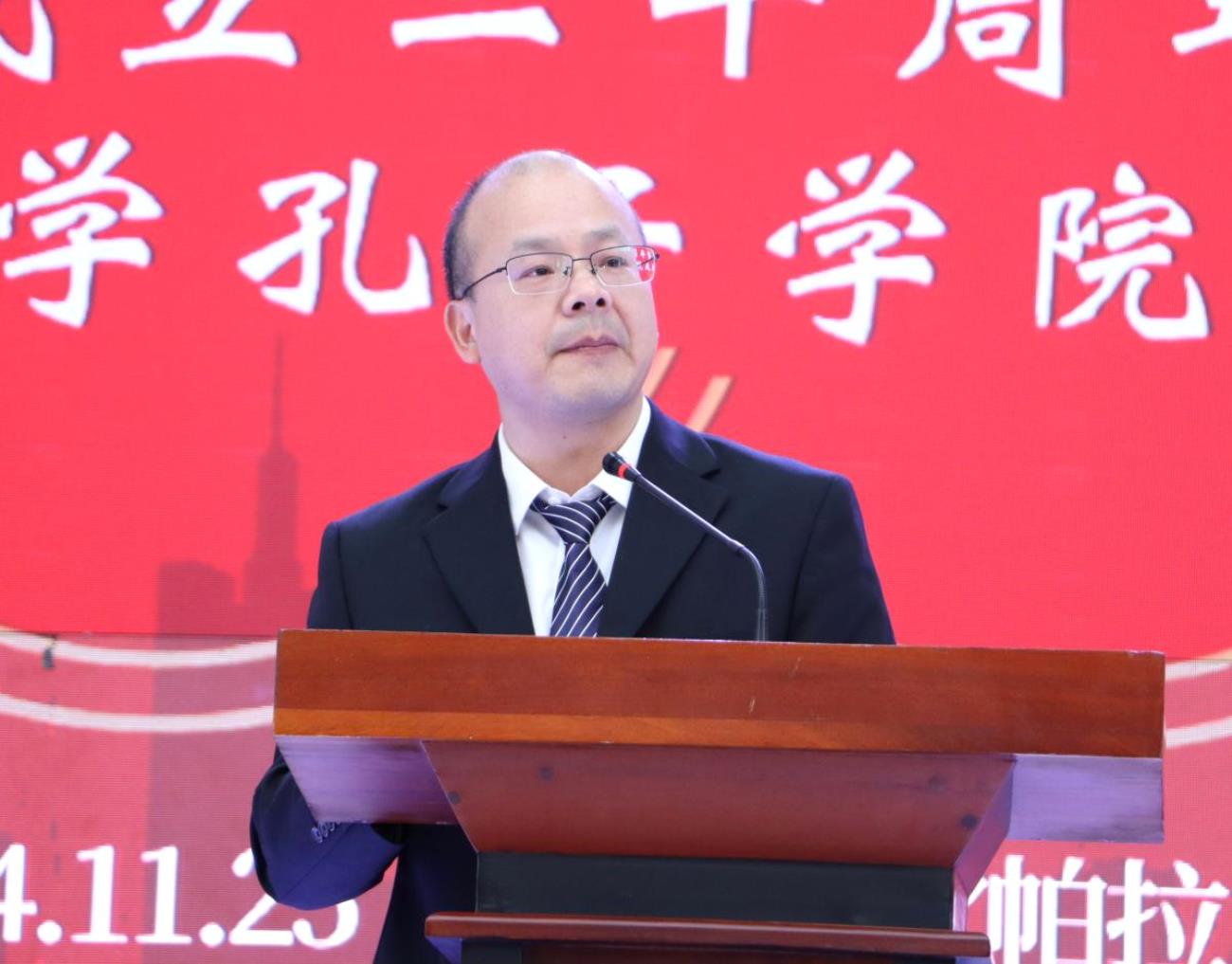
The foundation highlighted key milestones of the institute, including offering multi-level Chinese language courses, organizing cultural activities such as Voice Into My Heart, and training local teachers to successfully integrate Chinese language education into Uganda’s national system.
Acknowledging Makerere University‘s Vice Chancellor, Prof. Barnabas Nawangwe, for his congratulatory video message on the Confucius Institute Day in September, the foundation noted the strong support for the institute from both Ugandan and Chinese stakeholders. “This reflects how both the Chinese and Ugandan sides value and support the cause of the Confucius Institute, for which we express our heartfelt appreciation,” the Secretary General stated.
Expressing optimism for the future, the foundation emphasized its confidence in the institute’s continued success. “It is believed that with the cooperation of our two sides, the Confucius Institute will be able to give full play to its unique advantages and achieve even greater milestones,” the message concluded.
You may like
-


Botswana Delegation Visits Makerere’s Public Investment Management Centre to Study Sustainable Training Model
-


Makerere University commemorates 13 transformative years of partnership with Mastercard Foundation
-


Celebrating Academic Excellence: CoBAMS Presents 975 Graduands at Mak 76th Graduation Ceremony
-


Makerere’s 76th Graduation Ceremony: CHS showcases research strength with 26 PhD Graduates
-


Mak 76th Graduation Ceremony: CoNAS Presents 16 PhDs & Best Performing Male Student in the Sciences
-


Medical graduates urged to uphold Ethical values
Humanities & Social Sciences
Meet Najjuka Whitney, The Girl Who Missed Law and Found Her Voice
Published
1 week agoon
February 23, 2026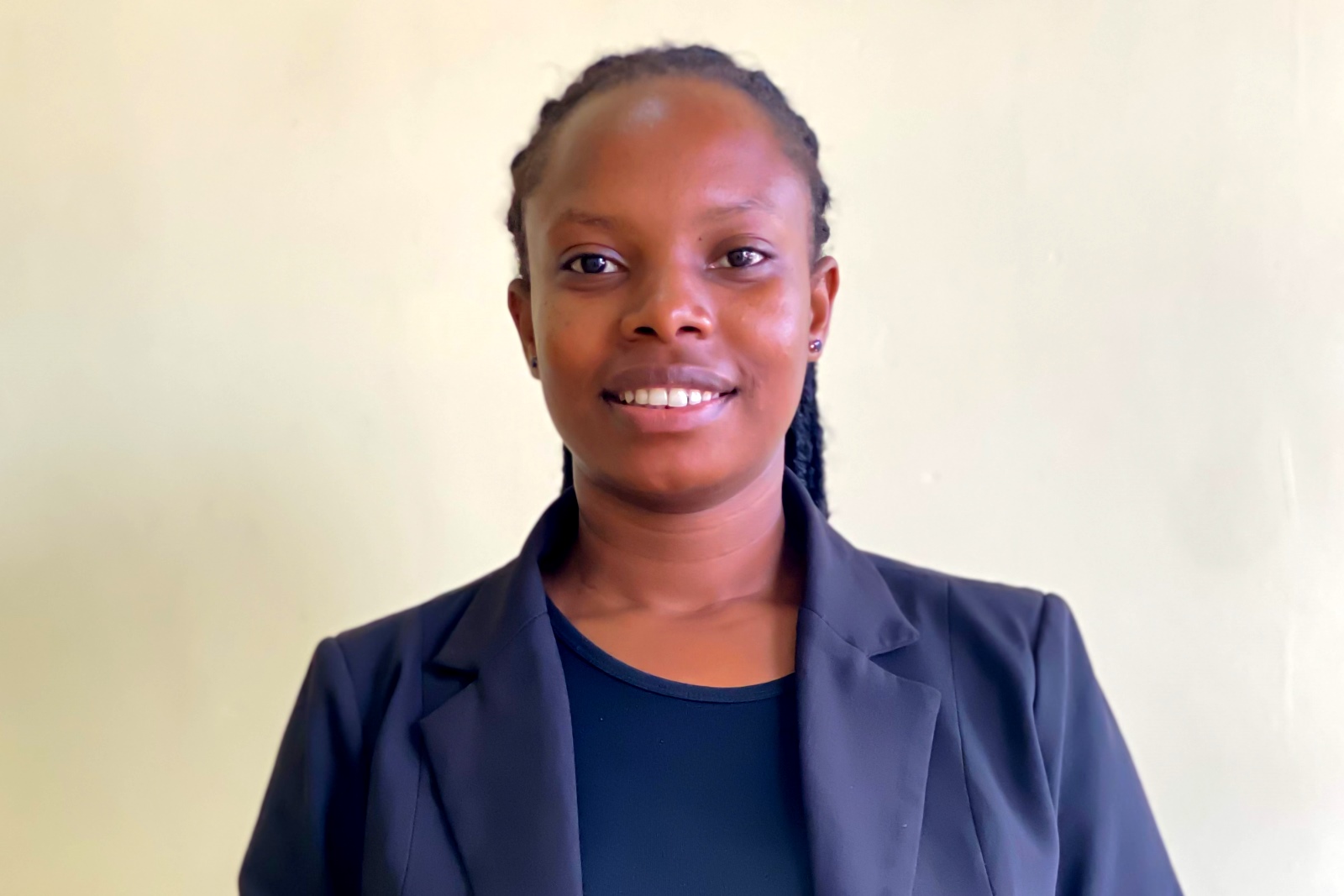
On the morning of Friday, February 27, when the academic procession winds its way across Makerere University’s Freedom Square for the last day of the 76th Graduation Ceremony, Whitney Najjuka will walk into history with a number beside her name: 4.46.
At Makerere, that number means First Class Honours. It means the Vice Chancellor’s List. It means she graduates as the only First-Class student in Journalism and Communication this year. But numbers, as Whitney has learned, rarely tell the full story.
Born on March 27, 2002, in Nabbingo, Kyengera Town Council, to Margaret Kusemererwa and Fred Kasirye, dreamt she would do Law, one of the disciplines, prestigious, almost inevitable next steps for a student who had excelled in secondary school. She had done everything correctly. Studied hard. Scored well. Followed the script.
But Makerere University had other plans. She missed the pre-entry mark, but found her name under Journalism and Communication, another prestigious course offered by the Journalism and Communication Department at Makerere University.
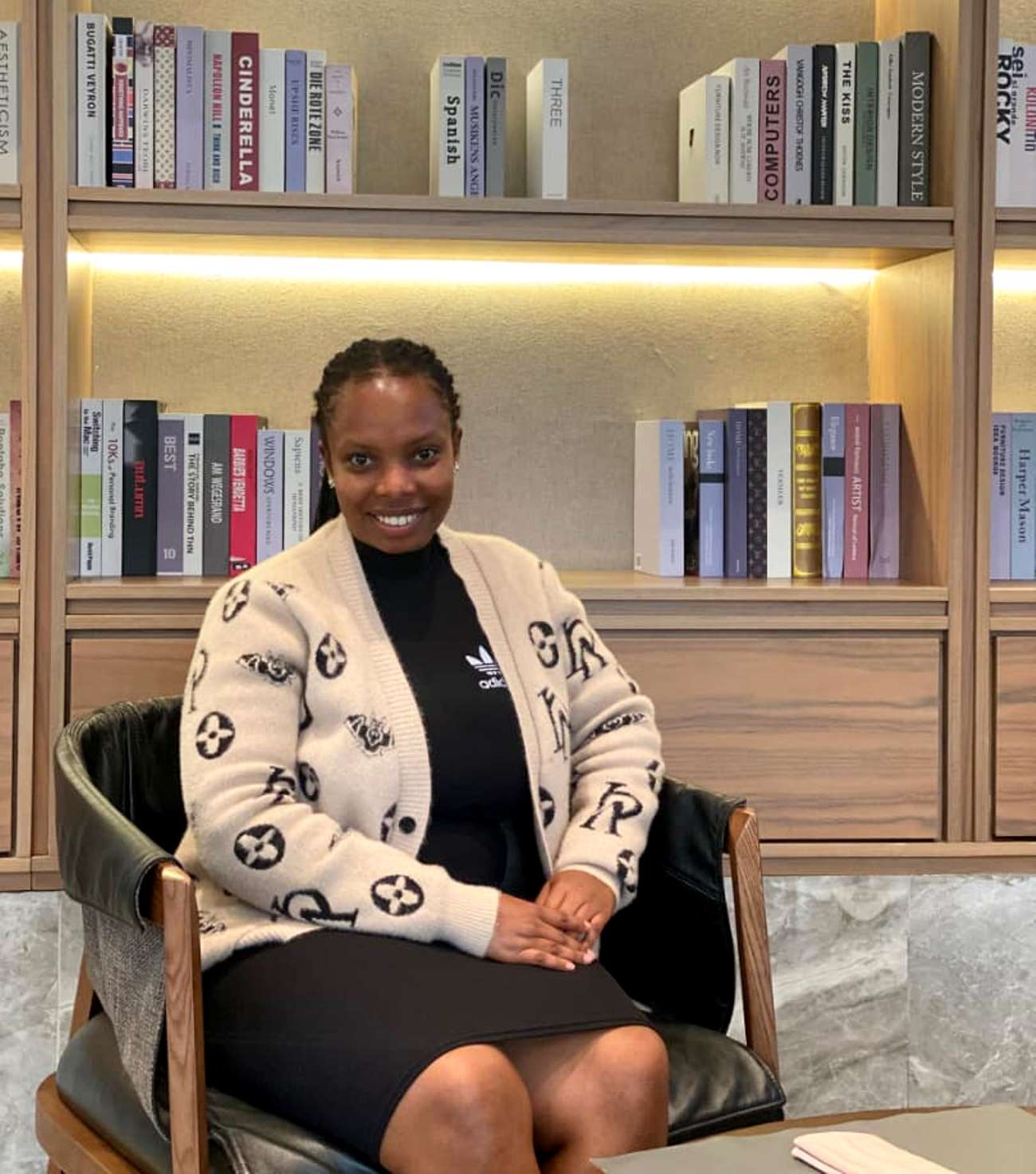
Najjuka began her academic journey at Muto Primary School in Buwama, earning 8 aggregates in the Primary Leaving Examination, a performance that positioned her strongly for secondary school.
She would later join St. Lucia Hill School, Namagoma, where she earned 20 aggregates at O-Level and 17 points in History, Luganda, and Divinity at A-Level.
Missing her dream course, Law, felt at first, like a detour. But Whitney was encouraged by Sanyu Christopher, her uncle, and she settled for a government-sponsored slot in the Bachelor of Journalism and Communication at Makerere, which she had applied for before.
She entered uncertain. But she graduates transformed.
The Pivot That Became a Purpose
Whitney speaks of her early university days with candor. She did not arrive at the Department of Journalism and Communication with a burning childhood ambition to be a journalist, but because another door had closed.
Then, Social and Behavior Change Communication happened. Applied Strategic Communication happened. She began to see media not as headlines and microphones, but as architecture, shaping how societies think, argue, and act.
The turning point came in her third year. The Female Journalist Foundation published her story on Sexual Gender-Based Violence (SGBV) and its emotional toll on survivors. What startled her was not its publication but the reaction. Comments flooded in. Debates ignited, especially about the role of men in combating GBV.
“I realized media doesn’t just report,” she says. “It frames how society views a crisis.”
Her voice, once tentative, had entered a national conversation.
The Discipline Behind 4.46
At Makerere University, a First Class CGPA is not built on brilliance alone but on ritual.
Whitney’s ritual began with showing up, on time, every time. She treated lectures as appointments with her future self. She refused to confine her learning to the syllabus. While attending workshops at the Aga Khan Graduate School of Media and Communication and obtaining external certifications, she sought and was open to mentorship through the Public Relations Association of Uganda (PRAU).
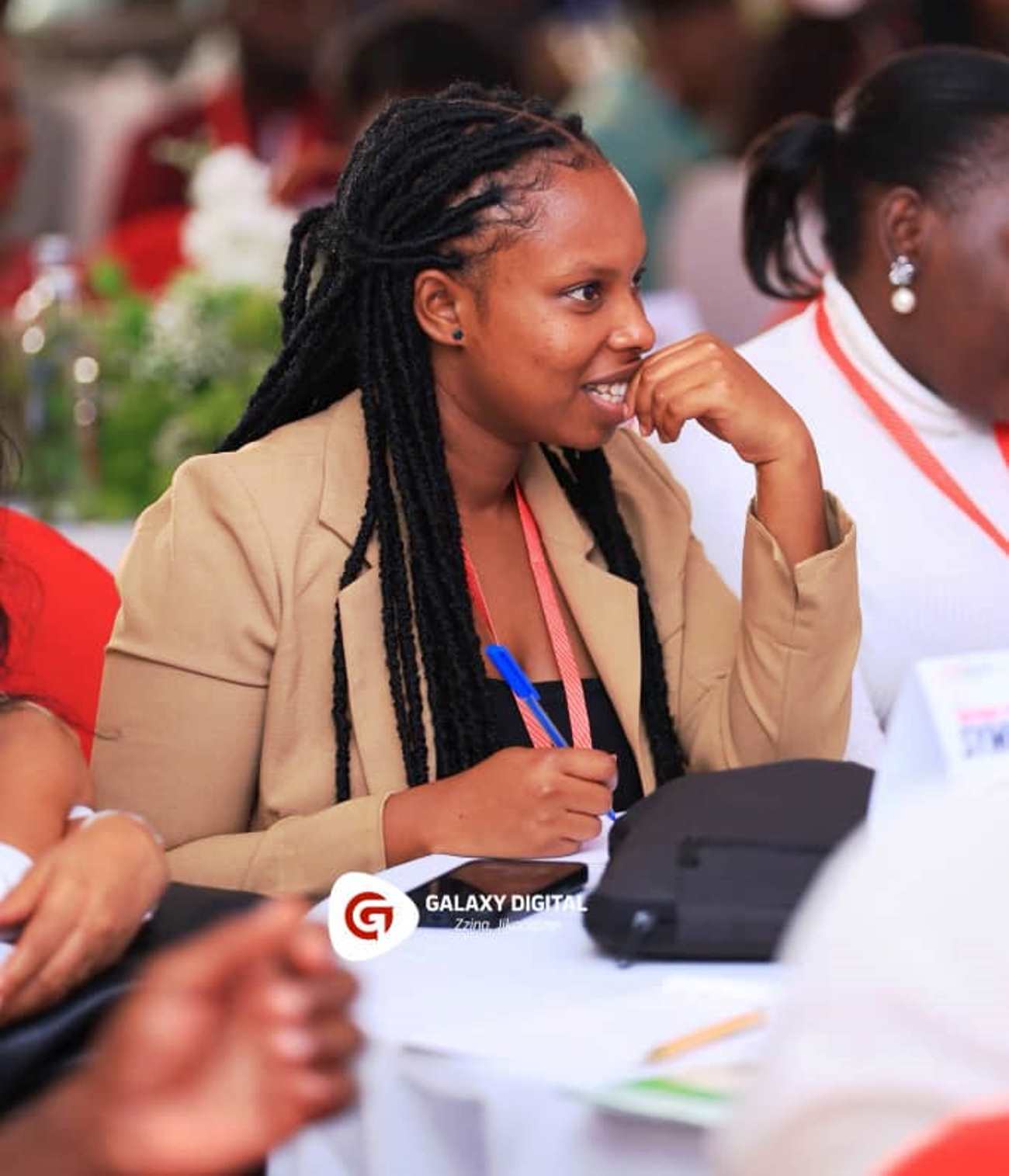
She wanted theory anchored in practice. And then there was the commute.
From Nabbingo, a hill in Wakiso District, some 18.6 km to Kampala, where the Makerere Main campus is situated, and back, nearly 20 hours a week dissolved into Kampala traffic. Two-hour journeys before 8:00 a.m. lectures. Dust. Noise. Headaches. She learned to manage energy the way others manage time. Fatigue became a tutor in resilience.
“I had to be intentional with every remaining hour,” she says. “Excuses were not an option.”
Learning to Practice Communication
If classrooms taught her analysis, presentations taught her courage. Pitching projects, defending research, and standing before peers quick to critique forced her to think on her feet. She was no longer simply studying communication; she was practicing it.
In 2024, the AGMES Fellowship at the Aga Khan Graduate School of Media and Communication pushed her further. She received funding to produce a capstone project on the mental impact of gender-based violence on survivors. She identified sources, conducted interviews, handled trauma with care, and worked with professional editors.
The Communication, she learned, is logistics and ethics as much as eloquence.
The Future She Sees
Whitney is optimistic about Uganda’s media landscape. The digital shift, she believes, has democratized influence. Young communicators are no longer confined to legacy newsrooms or offices.
Yet she sees a gap in the absence of structured research on sustainable, ethical, profitable independent media ventures in Uganda. Her ambition is not only to practice communication, but to study it. To produce data-backed frameworks that help young Ugandans transition from graduates to media entrepreneurs.
She wants to make the impact scalable.
What Remains
As the only First-Class graduate in her cohort, she is careful not to mythologize herself. “Success isn’t brilliance alone,” she says. “It’s a daily commitment when nobody is watching.”
Even before graduation, Whitney had stepped into the industry through a mentorship internship at Capital One Group (COG EA Ltd), a strategic marketing communications agency operating across East Africa.
At Capital One Group, we spoke to Paul Mwirigi Muriungi, the Managing Director and Head of Strategy, who spoke of Najjuka as a progressive and intentional young professional who approaches her work with curiosity, maturity, and responsibility.
“Her attitude is exemplary. She is teachable, receptive to feedback, and eager to grow. While technical skills can be taught, character, work ethic, and mindset determine long-term success, qualities that Whitney consistently demonstrates. Given her academic excellence and professional application, we believe she has a bright future both at Capital One Group and within the wider communications industry. She represents the kind of talent the profession needs: thoughtful, adaptable, and committed to excellence.
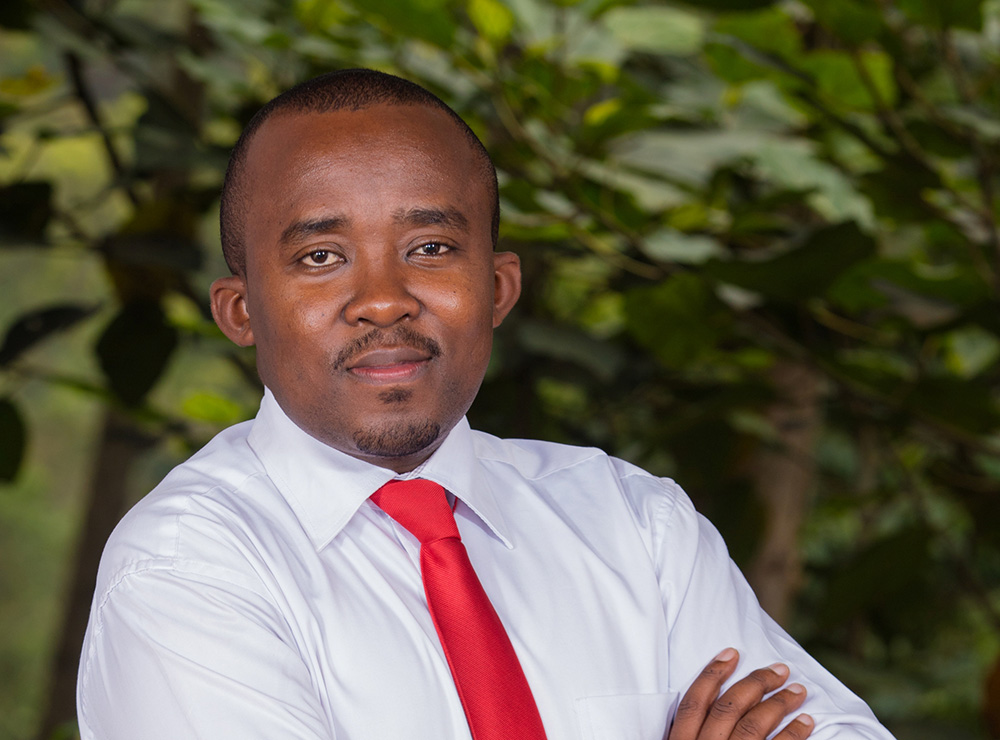
“We look forward to seeing her next chapter unfold,” says Mwirigi.
Najjuka’s gaze extends beyond her own trajectory. She speaks of what the Department could become. Furnished and equipped with industry-standard equipment, newsroom simulations, and deeper investment in data journalism as prayers. Her excellence is not self-congratulatory, but it is forward-looking.
“The University should support the Department to procure industry-standard equipment. Access to high-quality cameras, sound booths, and updated editing software like Adobe Creative Suite is critical to our learning environment,” she says.
Adding that, “We need a newsroom simulation, a physical or digital space where students work under real-time deadlines to produce content for the public. That would prepare us for industry and even strengthen the University’s own media platforms.”
In an era defined by metrics, algorithms, and digital traceability, data journalism is no longer a niche skill but a sine qua non of credible reporting. “There should also be more focus on data journalism and search engine optimization. These are no longer optional skills. Students would benefit immensely from stronger training in these areas.”
Dr. Aisha Nakiwala, the Head, Department of Journalism and Communication, says the faculty are very proud that she is graduating with a First Class—the only one in this year’s cohort.
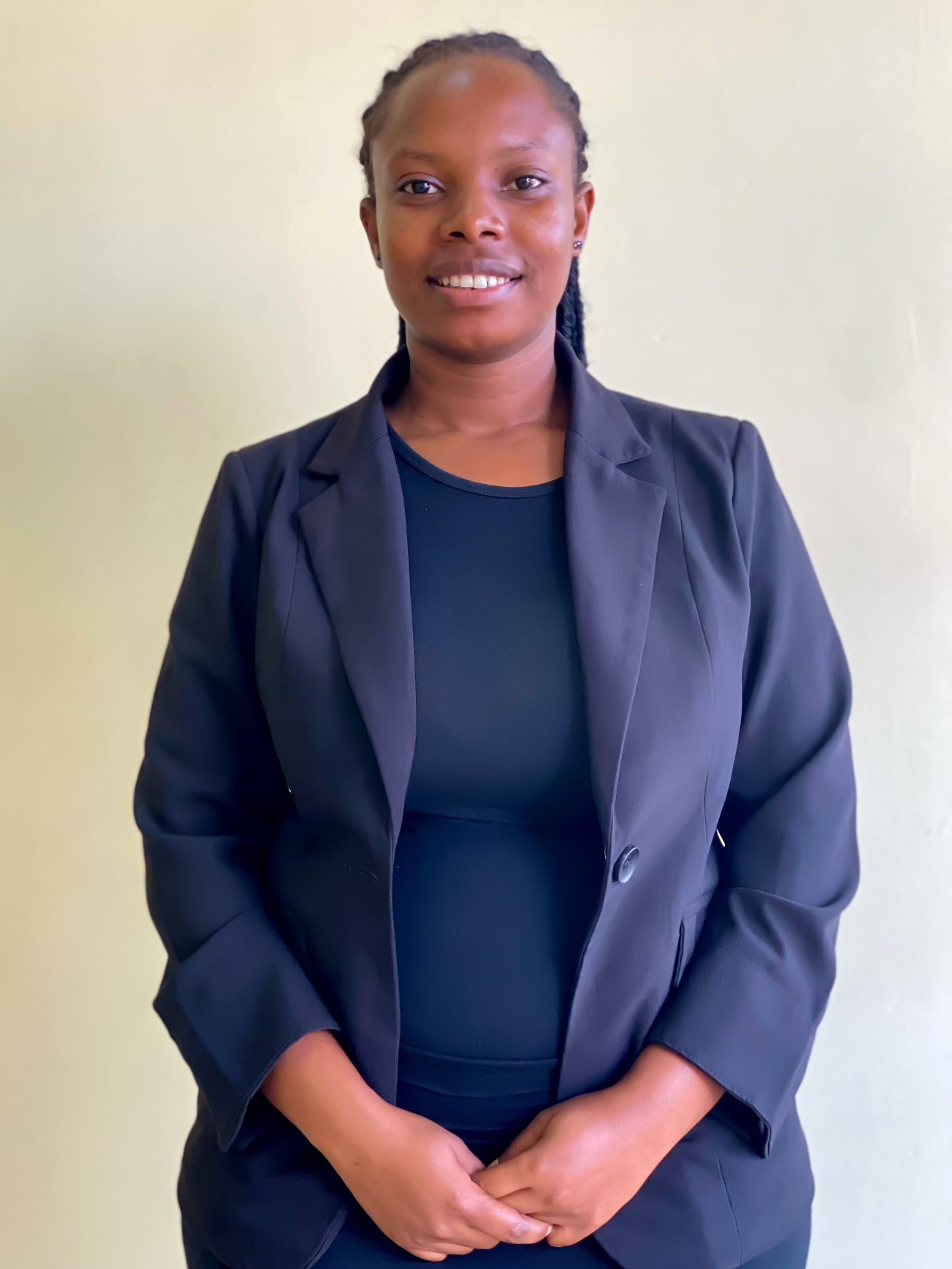
“This achievement reflects not only exceptional intellectual ability but also discipline, resilience, and sustained dedication to the highest standards over four years. Graduating with first-class honors is no small feat; it requires consistent outstanding performance.
“Her accomplishment sets a powerful example for continuing students and reaffirms our department’s commitment to nurturing excellence. We are confident she will make meaningful contributions to the communication profession and society at large,” says Dr. Nakiwala.
On graduation day, applause will crest and recede. The gowns will fold back into wardrobes. The transcripts will be filed away in cabinets. But something quieter will endure; a young woman from Nabbingo who once missed her Law mark, who spent 20 hours a week on the road, who discovered that storytelling is power, and who now walks into Freedom Square not by accident, but by intention.
Life, as she has come to understand it, lives on.
Humanities & Social Sciences
Dr. Pamela Khanakwa Honored for Steering Record 18 PhD Candidates for the Mak 2026 Graduation
Published
1 month agoon
January 23, 2026By
Jane Anyango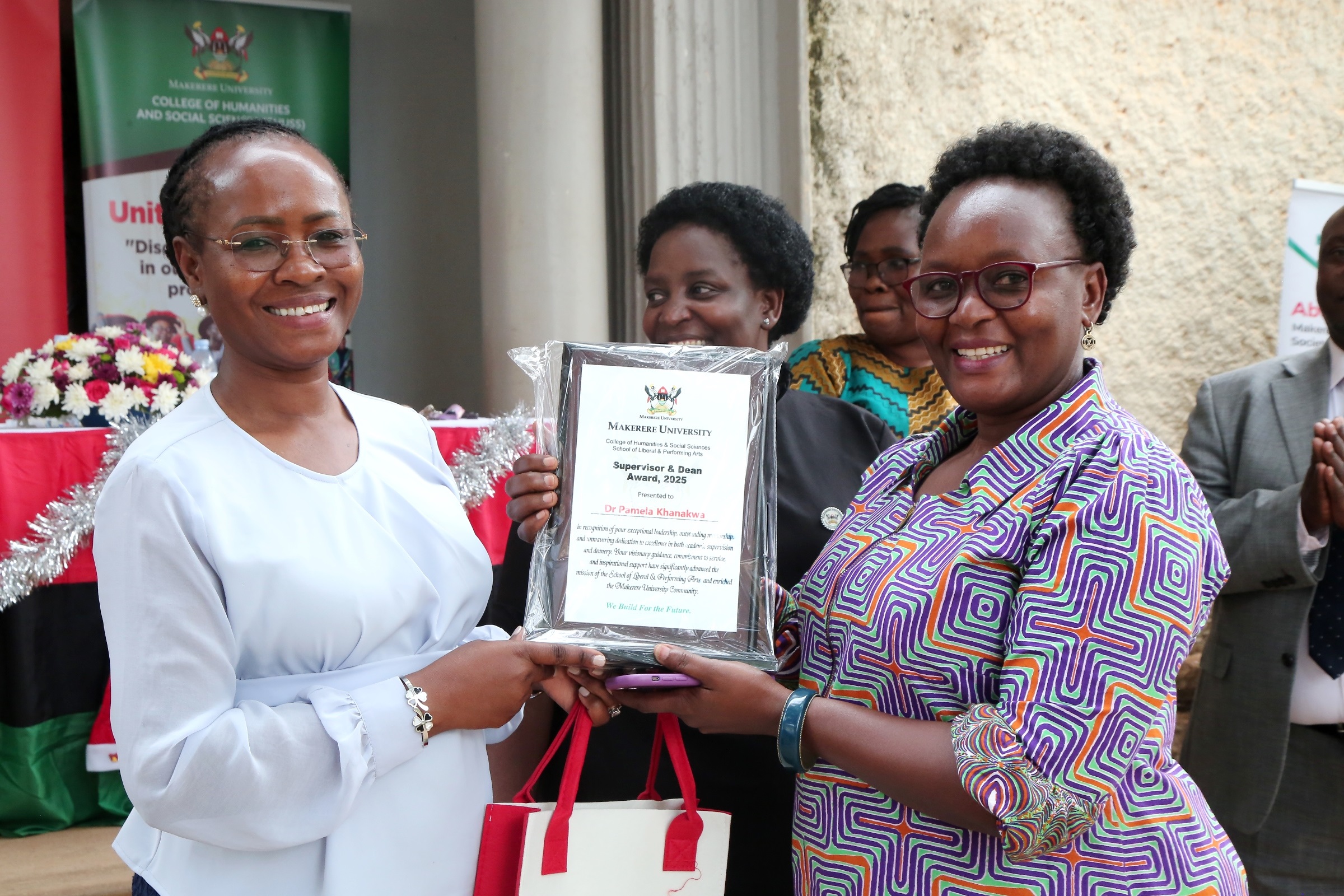
Six personally supervised, three completed in record time, as School of Liberal and Performing Arts sets a historic milestone. Dr. Pamela Khanakwa got the Award as Best PhD Supervisor and Dean
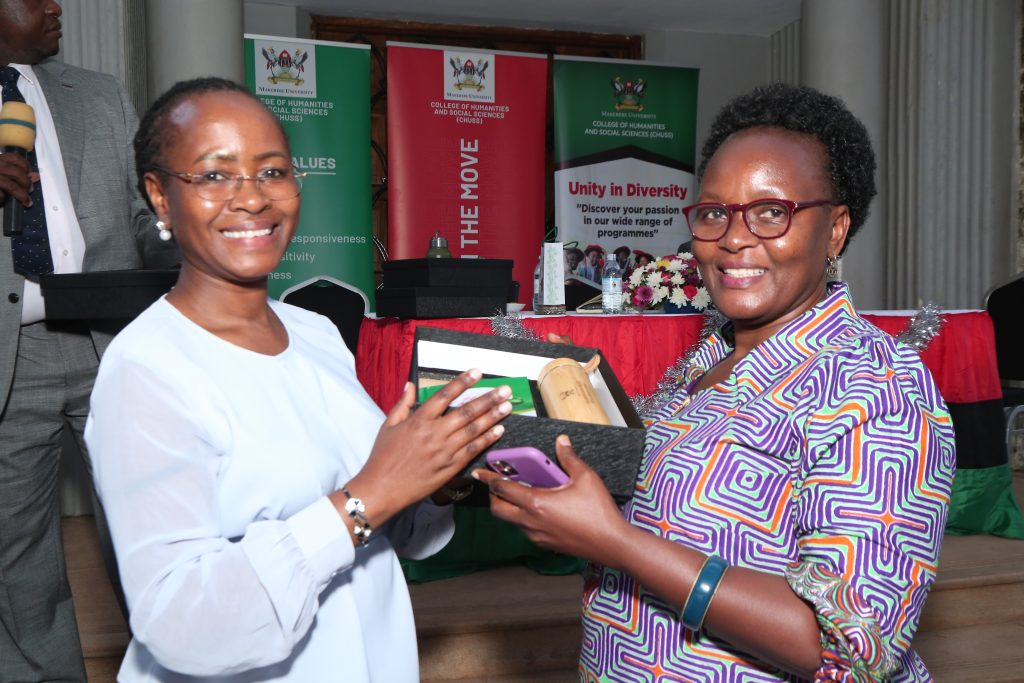
A Historic Academic Milestone for SLPA
The College of Humanities and Social Sciences (CHUSS) recognised the Dean of the School of Liberal and Performing Arts (SLPA), Dr. Pamela Khanakwa, for outstanding academic leadership that has seen the School field 18 PhD candidates for the next 2026 Makerere University Graduation Ceremony scheduled for 24th-27th February. Remarkably, six of these doctoral graduates were directly supervised by Dr. Khanakwa, with three completing within the official three-year timeframe, an exceptional achievement in graduate training. The recognition was announced during the CHUSS End-of-Year Get-Together, where staff applauded Dr. Khanakwa’s dedication, humility, and relentless commitment to postgraduate supervision and timely completion.
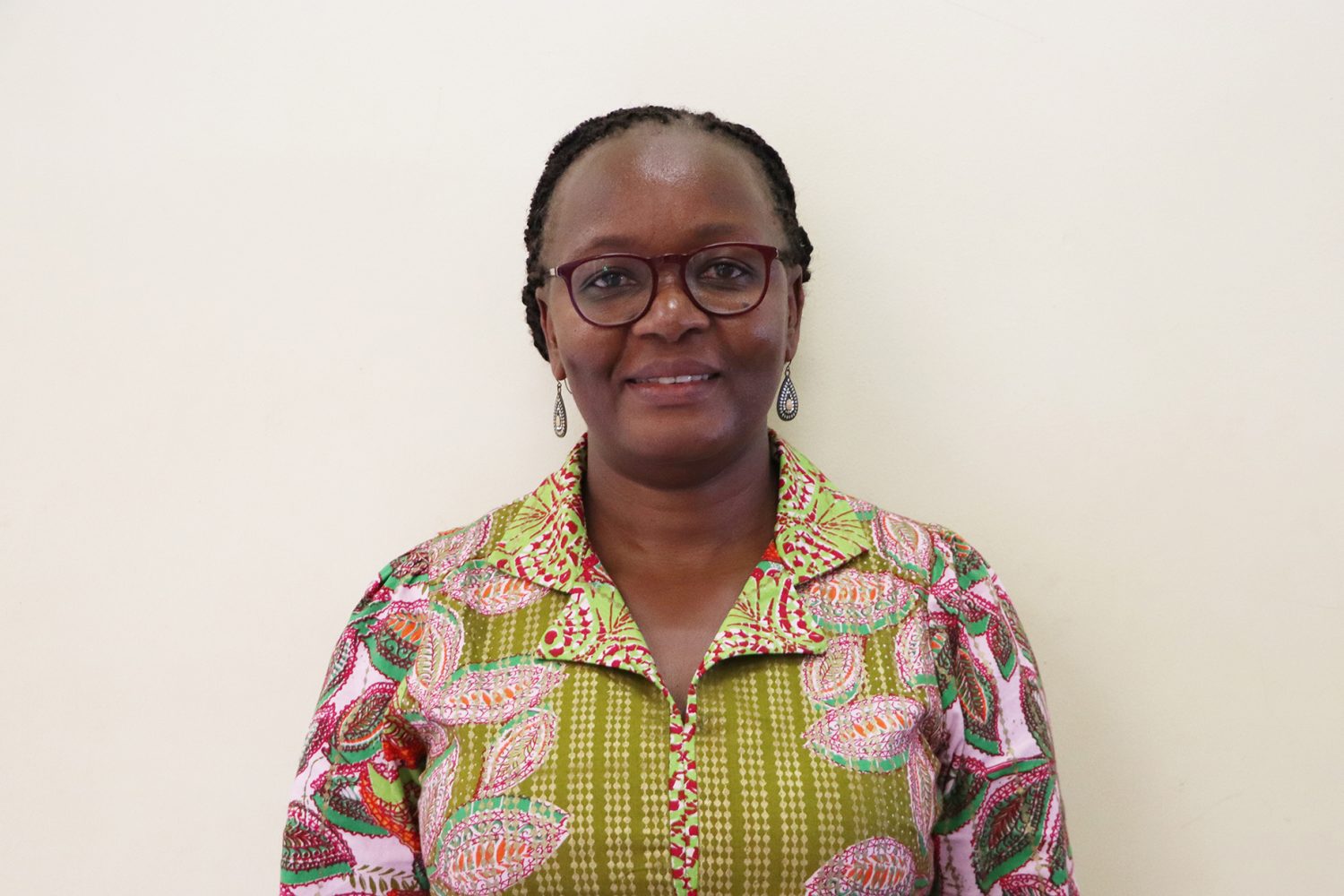
Message to Academic Staff
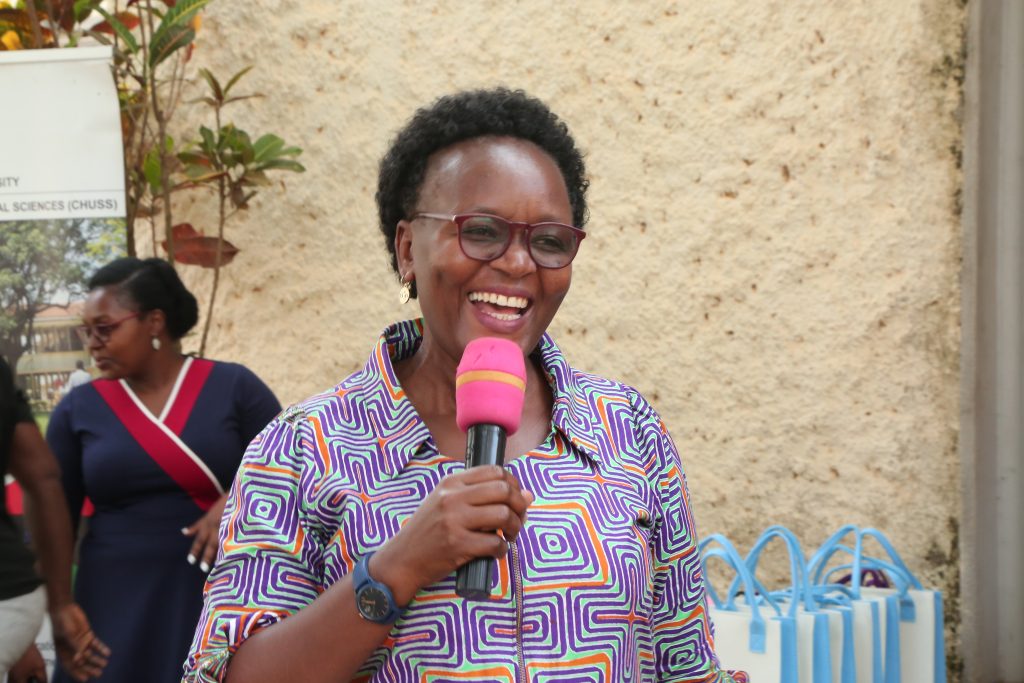
Q: What message do you have for your staff following this achievement?
Dr. Khanakwa:
First, I celebrate my staff and thank them for their dedication to supervision and student support. Academic work is demanding, and material rewards are often limited, but the true satisfaction comes from seeing students succeed.
I encourage my colleagues to remain committed. Yes, the workload is heavy, but many things are possible with dedication and teamwork. Let us continue working for the good of our students, our School, and Makerere University.
Leadership Rooted in Humility
Q: Many colleagues describe you as humble, down to earth, and hardworking. What shapes this character?
Dr. Khanakwa:
I think it is largely my upbringing. My mother was a primary school teacher from the 1950s until the mid-1980s. She worked extremely hard to raise us, combining teaching with farming to ensure we had school fees and basic needs. From her, I learned humility, discipline, and the value of hard work.
I also learned that leadership positions are temporary. You occupy them today, and tomorrow you move on. So humility is essential.
My graduate training also shaped me significantly. My PhD supervisor emphasized that graduate study is a full-time job and that results matter more than noise. Let people see your work through outcomes, not announcements.
Supervision as a Two-Way Commitment
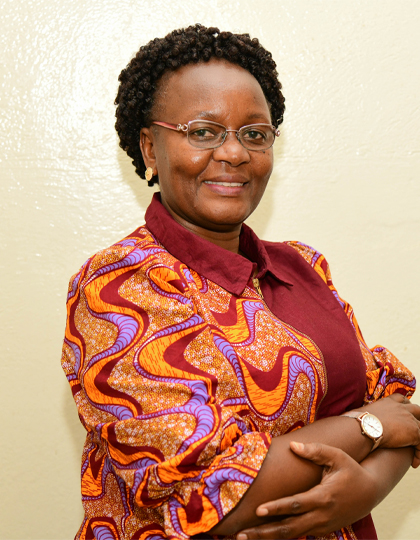
Q: How would you describe your supervision style?
Dr. Khanakwa:
I read my students’ work thoroughly, word by word. Sometimes my comments are tough, but they are honest. Supervision is a two-way commitment. I give feedback, but students must also respond and remain engaged. When that relationship works, progress happens.
Balancing Leadership, Scholarship, and Family
Q: How do you balance being a Dean, scholar, wife, mother, and daughter?
Dr. Khanakwa:
Honestly, I am not sure I balance perfectly. My mother lives far away in Bukwo, so visiting requires careful planning. My children grew up understanding the demands of academic life. I pursued my PhD in the United States and spent long periods away, but we adapted as a family.
Work has become part of my lifestyle. I use weekends to read dissertations, review manuscripts, and write. Sometimes my children ask if I ever sit without working, but this is the commitment I made. As we often say jokingly, “We humbly applied for the job, so let us do the job.”
Scholarship Beyond Supervision
Dr. Khanakwa is also an active scholar and editor. In the past year alone, she has:
- Edited scholarly volumes on archives, memory, method, and pedagogy
- Published a book with Routledge Companion
- Co-authored journal articles and book chapters with graduating students, including Priscah Asiimwe and Anatoli Lwasa Mpijja
“I feel an obligation to write with students,” she notes. “It takes time, energy, and commitment, but it is part of academic mentorship.”
Who Is Dr. Pamela Khanakwa?
Dr. Pamela Khanakwa is the Dean, School of Liberal and Performing Arts, College of Humanities and Social Sciences, Makerere University. She is a seasoned scholar, supervisor, administrator, and mentor whose leadership continues to redefine graduate training excellence. Details about Dr. Pamela Khanakwa can be accessed at: https://chuss.mak.ac.ug/en/personnel/pamela-khanakwa/
More details are available in her attached curriculum vitae.
The CHUSS End- Of-Year-Get-Together
On 12th December, 2025 the college leadership organised a get-together end of year gathering to take stock of the achievements, challenges and brainstorm together on how to move forward. The event was marked by entertainment, team building games, appreciation speeches, sharing a meal and a Christmas package for every staff
Retirees and staff recognised
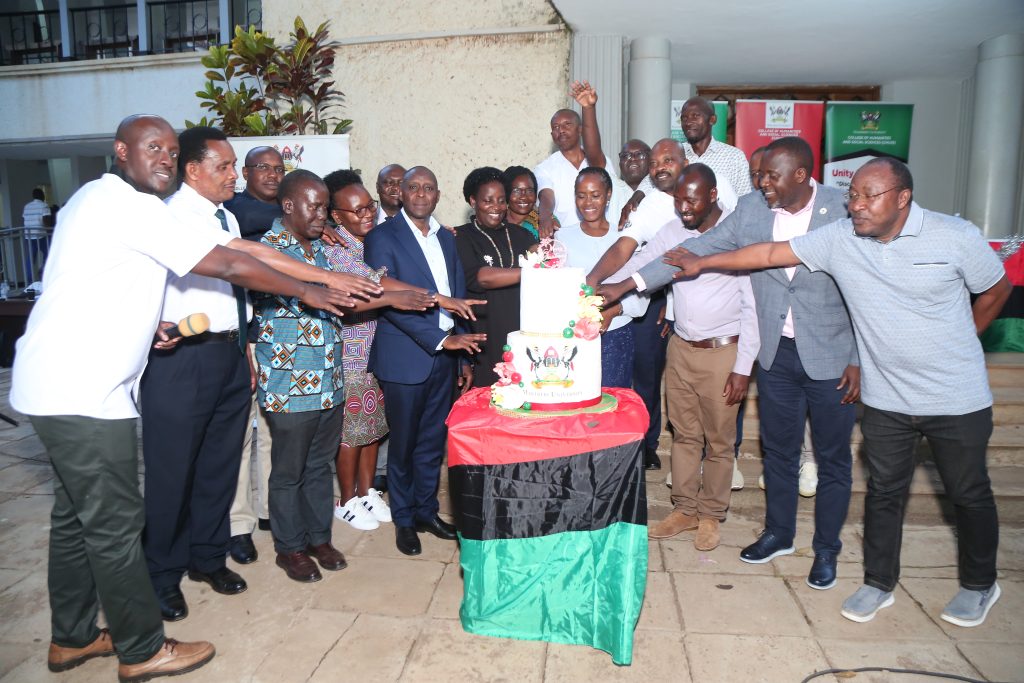
Five retired staff Dr. Micheal Wangotta Masakala, Dr. Anatole Kirigwajjo and Dr. Jackson Kizza Mukas (all from the School of Languages, Literature and Communication), Assoc. Prof. Florence Nansubuga (School of Psychology), Dr. Tusabe Gervase (School of Liberal and Perforing Arts) and Ms. Scovia Nganda Sekweyama (secretary from the School of Social Sciences) were recognised for their dedicated services to the university.
In addition to Dr. Pamela Khanakwa’s Award as Best PhD Supervisor and Dean, Ms. Birabwa Florence scooped the award of Best Registrar of the year. Birabwa is the registrar for the School of Liberal and Performing Arts.
Administrative and support staff including Ms. Mary Gyezaho and Annet Kashumbusha(both administrative secretaries in the Principals office), Farouq Lule (IT Officer), Godfrey Kakooza (cleaner), Charles Sebuguzi (driver) and Jane Anyango (Communications officer) were recognise with awards for outstanding service. Dr. Mohamed Mayanja Kajumba was from the School of Pyschology was recognised as the person with an outstanding talent in Handwriting.
The celebrations held in the Arts quadrangle were graced by the Vice Chancellor Academic Affairs Prof. Sarah Ssali and the Deputy Vice Chancellor in charge of Finance and Adminstration Prof. Ireeta Tumps.
Humanities & Social Sciences
Ugandan Journalists Trained on Peace and Gender-Sensitive Reporting Ahead of 2026 Elections
Published
2 months agoon
January 9, 2026By
Jane Anyango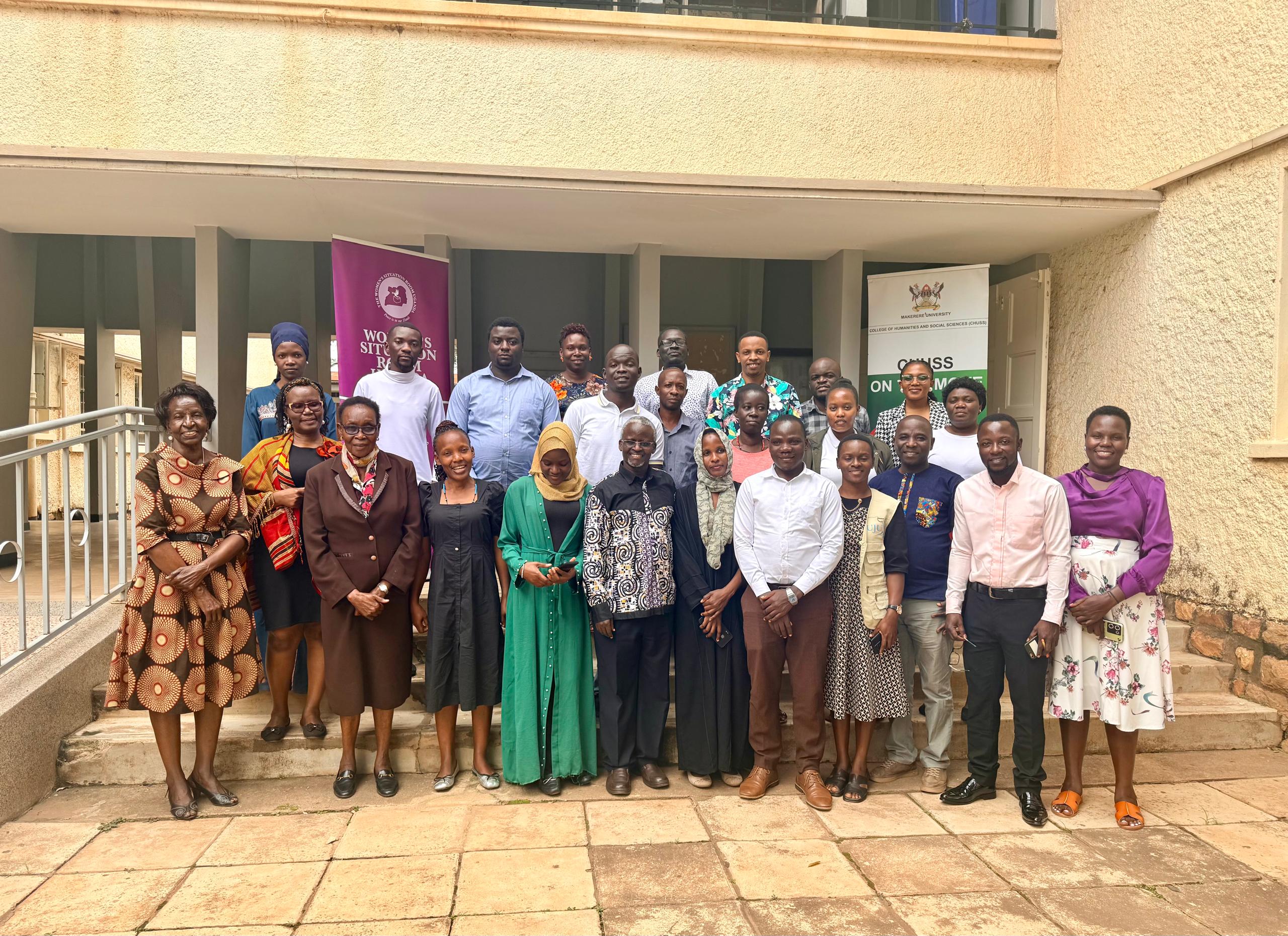
Kampala, Uganda – January 9, 2026
Ahead of the January 15 general elections, Ugandan journalists have undergone specialized training on peace and gender-sensitive reporting to ensure responsible media coverage during the election period. The two-day training, held from 8th to 9th January 2026 at Makerere University’s College of Humanities and Social Sciences Smart Room, was organized by the Women’s Situation Room (WSR) in partnership with various stakeholders and brought together journalists from across print, broadcast, and online platforms.
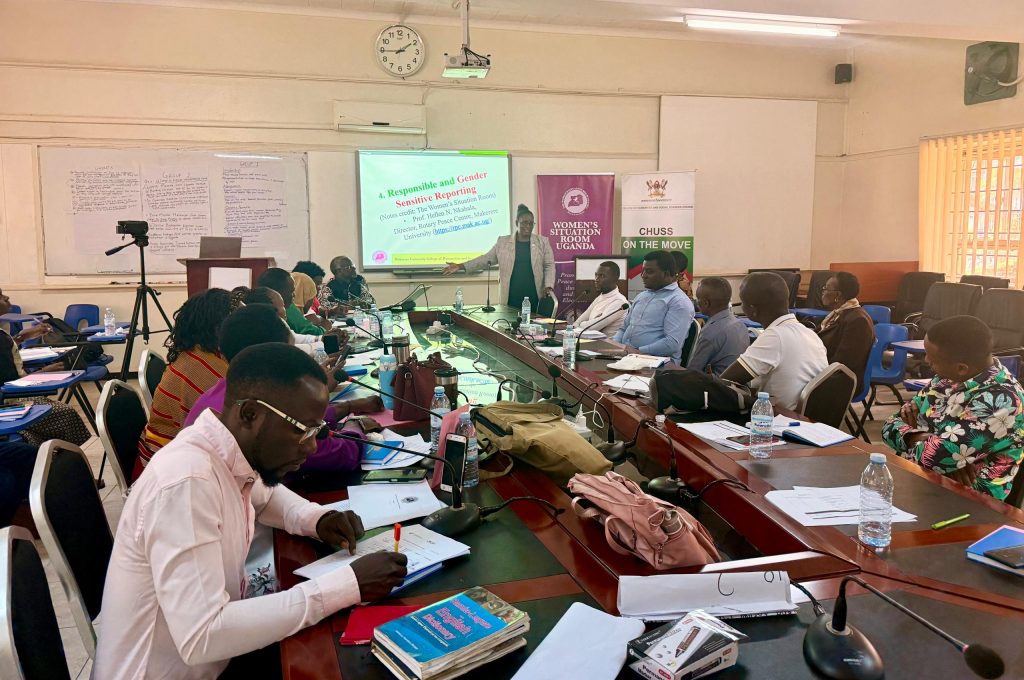
The main objective of the training was to strengthen the capacities of media in reporting and documenting electoral processes in a responsible and gender-sensitive manner. The specific objectives included: strengthening journalists’ skills to cover the 2026 elections in a fair, balanced, gender-sensitive, and non-violent partisan way; enhancing the role of media to enable citizens to be well-informed and actively participate in the election process; ensuring focused and balanced reporting on peace during and after elections; and strengthening partnerships between the WSR and media houses during the election period.
The training covered multiple critical modules. Day one focused on responsible conflict-sensitive reporting, emphasizing principles such as balance, impartiality, and accuracy. Participants explored the role of media as a relayer of the population’s voice, election monitor, catalyst for social cohesion and reconciliation, contributor to the accountability of political actors, and a platform for detecting and debunking digital media misinformation and hate speech.
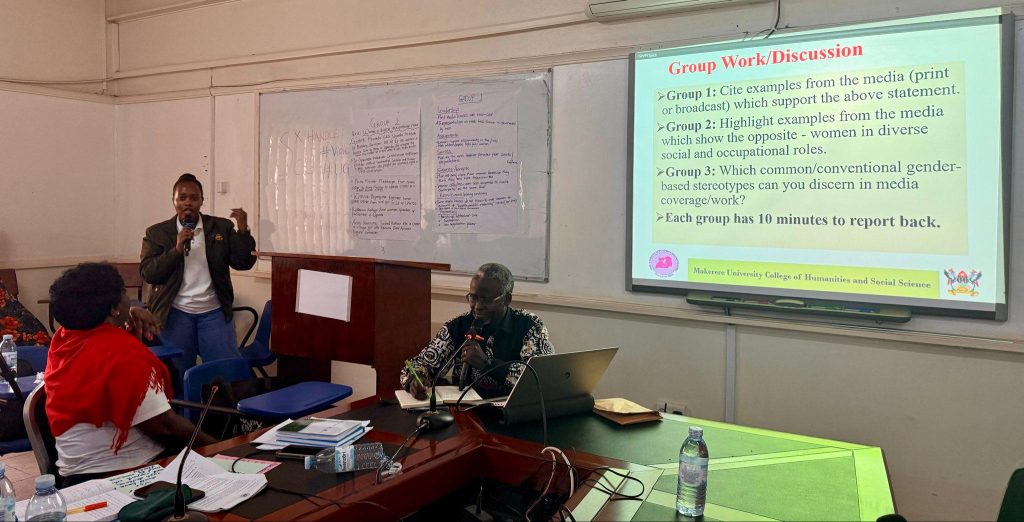
Day two addressed responsible and gender-sensitive reporting. Key aspects included the definition of gender-sensitive reporting, how to become a gender-sensitive reporter, critical elements in reporting with gender awareness, packaging gender-sensitive stories, and a checklist for detecting and avoiding gender-insensitive reporting.
Her Lordship, retired Judge Justice Mary Mayitum, emphasized the importance of peace as the foundation of development and democratic engagement. “Because we value peace more than anything. Without peace, really, you can do nothing. But where there is peace, you can have time to reflect, discuss with others, and join in meaningful dialogue,” she said. She warned that the country’s past conflicts, such as those in Gulu, underscored the necessity of maintaining national harmony.
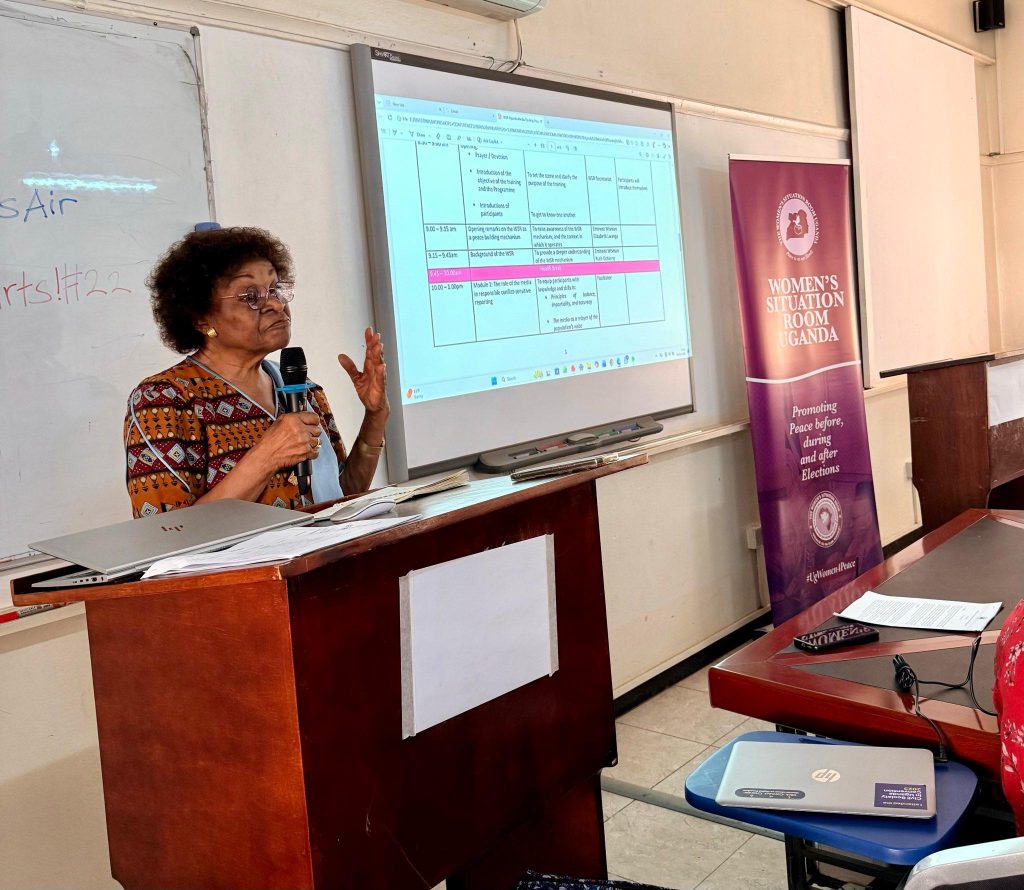
Justice Mayitum also urged other key election stakeholders to uphold peaceful conduct. “Being peaceful is the very heart of life. We have spoken to police, security personnel, political parties, and the Electoral Commission. We want politicians to have a code of conduct and to understand that it’s okay to think differently without fighting or hating one another,” she added.
Dr. William Tayebwa, lead facilitator and senior lecturer in the Department of Journalism and Communication at Makerere University, said, “This training is about conflict-sensitive reporting, peace journalism, and gender-sensitive reporting in the context of the elections. The emphasis was on giving female political candidates a voice while ensuring journalists report responsibly on election-related matters.”
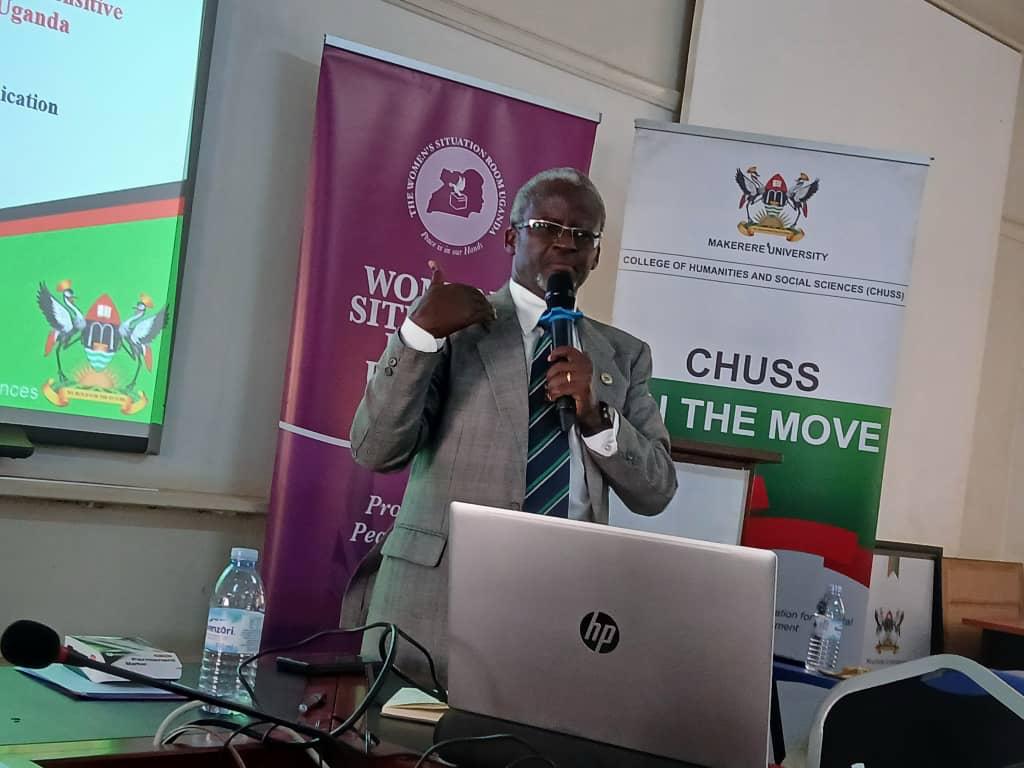
Participants described the training as timely and impactful. Tony Banizengabo of CBS Wakiso District said, “We’ve benefited a lot. We’ve been trained to write stories which bring peace, not conflict. Ahead of the elections, we are very ready to be part of peacemakers.”
Dorcas Kimono of UBC TV Kampala added, “It was so timely and rich. We learned how to report without promoting or fueling violence, giving voice to victims without angering them or encouraging violators. This is very vital, especially as we approach the 2026 elections.”
The training aims to equip media personnel with the knowledge and skills to uphold professional ethics while contributing to a peaceful, inclusive, and gender-sensitive electoral process.
Trending
-

 Humanities & Social Sciences1 week ago
Humanities & Social Sciences1 week agoMeet Najjuka Whitney, The Girl Who Missed Law and Found Her Voice
-

 General1 week ago
General1 week ago76th Graduation Highlights
-

 Health2 weeks ago
Health2 weeks agoUganda has until 2030 to end Open Defecation as Ntaro’s PhD Examines Kabale’s Progress
-

 Agriculture & Environment2 weeks ago
Agriculture & Environment2 weeks agoUganda Martyrs Namugongo Students Turn Organic Waste into Soap in an Innovative School Project on Sustainable Waste Management
-

 General2 weeks ago
General2 weeks agoMastercard Foundation Scholars embrace and honour their rich cultural diversity
